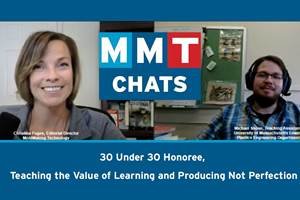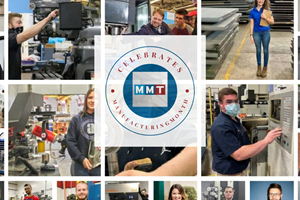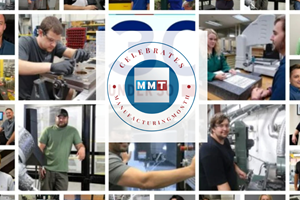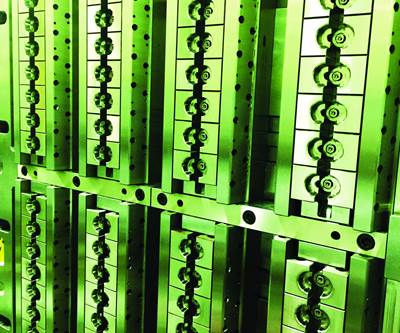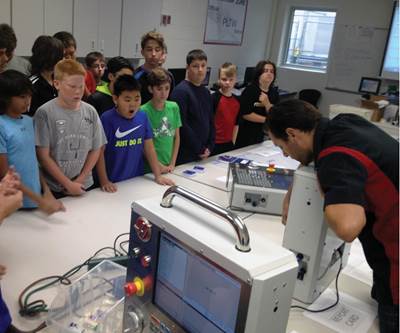Imagine a theme park dedicated to tool and moldmakers where they get a glimpse into the digital future. Imagine a place where they can put on virtual reality glasses and take a look at a customer’s mold in South Africa, or they can take a look to maintain a machine, connect with industry peers and researchers, participate in interesting projects or have their molds optimized and machined in an automated, full-scale workshop.
The WBA Tooling Academy (WBA) is in Aachen, Germany, and it is that theme park. The school is closely connected with RWTH Aachen University, one of the leading technical universities in Germany. It provides a unique world of experience for tool and moldmakers who are ready to embrace digitalization.
Catchphrases like “Industry 4.0,” “digitalization” and “data-driven manufacturing” are ubiquitous and seem to describe a futuristic scenario that does not apply to daily routines and workshops. But in reality, that scenario does apply. Industry 4.0 simply means to network people, machines, objects and systems with the aim of controlling dynamic and complex production systems in real time.
Mold shops must address new areas of activity and develop digital applications in order to remain competitive in the future.
The ultimate goal is a self-optimizing system. Take, for example, a machine that runs 24/7 with optimum parameter settings without any operator intervention. However, according to professor Wolfgang Boos, CEO of WBA , Industry 4.0 is more. It starts with visualization (knowing what is happening in the shop) and transparency (understanding the reasons why things happen). The next step is preparation, which means knowing what will happen so that it is possible to adapt and automatically react.
Industry 4.0 is happening, and although it is impacting tool and mold shops around the world, this industry segment is lagging behind in digitalization, according to professor Boos. “Mold and die shops must address new areas of activity and develop digital applications to remain competitive. Digitalization must be addressed through data analysis and through smart tools that collect process data during series production and autonomously adjust process parameters. We have to evolve from a production enabler to a production optimizer.”
To support the industrialization of tool and mold shops, WBA is working on digitally networking the industry. According to professor Boos, the focus is on increasing the efficiency of order processing for batch-size-one production in a global value-creation network.
Offering Hands-On Solutions
So far, so good. But to some, digitally networking the industry still sounds very abstract, academic and not hands-on. However, upon visiting WBA, which has more than 80 member companies, it becomes clear that it builds a bridge between science and industry and offers hands-on solutions for shops. In its demonstration shop, WBA reproduces the entire tool and moldmaking process chain and owns machine tools (milling, turn-mill, three- and five-axis) from various machine tool brands, as well as a wire EDM machine and a die-sinker EDM machine with integrated automation.
“We are building real molds according to our member companies’ requirements,” professor Boos says. “Sometimes these companies have various questions regarding mold flow behavior or whether the mold insert should be milled or peened. We are also creating smart tools, where integrated sensors measure temperature and pressure distribution. We use five-axis machining with integrated automation to gain valuable data that we share with companies interested in optimizing their machining strategies through automation.”
The demonstration workshop is making production parts for customers to create an environment that reflects real-world conditions. But, it also develops new applications, tools and accessories to optimize and digitalize processes. For example, the engineers have developed a digital assembly table, which is supposed to reduce errors and increase efficiency during mold assembly and maintenance through digital images and movies (which are produced by a worker who performs the assembly using virtual reality glasses. “Even if this is just a demonstration and not a finished product, member companies might see it and implement one or two features in their shops. Our support starts with ideas and food for thought.”
Examples of Industry 4.0 include a system that captures and evaluates errors along the entire process chain. It employs a user-friendly, smart device app and a shopfloor, user-friendly networked system designed to comprehensively and continuously gather data and interpret processing times, idle times, setup times, etc.
Additionally, WBA is working on workflow solutions, such as methods for creating a paper-free production through bar or QR codes integrated into the workpiece.
“We have to evolve from a production enabler to a production optimizer.”
Simplifying Workshop Requests
Another interesting project designed to optimize the process chain is dealing with change requests. “Today, a change request is sent to the designer, who makes the change on the part and sends it to the production planning department. After CAM programming, the order finally reaches the shop floor where the job is eventually executed. We have analyzed 12 different shops involved in car-body production, and each shop provided data from five different projects. On average, it took 8.5 days for each change request, and there are 23 change requests per part on average in each company,” professor Boos says.
“These times are ridiculous. We talk about Industry 4.0, but it takes eight days to make a change to a part? Industry 4.0 means that the designer pushes a button, and the change is immediately transferred to the machine. To realize this, we are currently working on how to eliminate manual work with a new data format.”
While professor Boos emphasizes that WBA’s primary mission is to support German shops, globalization has a considerable influence on the tool and moldmaking industry. Not only are customers internationally positioned, mold shops are also increasingly opening factories or cooperating with local companies in markets where their customers are located.
Global Support
“In order to overcome the challenge of internationalization, shops require extensive market intelligence to identify and evaluate customers, suppliers and competitors. We help companies by analyzing global markets and to find local suppliers, partners or mold shops. The problem is that there are countries like South Africa and Mexico, which are home to the global automotive industry. Companies like BMW, Ford or Daimler have to import their tools and molds and send them overseas again for maintenance and repair because the tool and moldmaking industry is virtually nonexistent in these countries.”
“I remember a German company that tried to set up shop in Mexico a while ago. They were working on establishing the company for two years, but it didn’t work. They wasted a lot of money because they were lacking local contacts. It doesn’t make sense to set up shop in a country with an unfamiliar language or culture and without a network. As a result, we help companies find potential partner companies, including small shops with staff lacking the appropriate knowledge and expertise in moldmaking but have contacts and an understanding of how business works in Mexico.”
In support of its member companies, especially in the automotive industry, WBA helps local shop owners and engineers in South Africa and Mexico to broaden their knowledge and reach an educational level that enables them to enter the supply chain. Car manufacturers are increasingly producing in emerging markets such as Mexico, which is one of the world’s major economic locations. “But neither original equipment manufacturers, suppliers nor specialized tool and mold shops are able to cover the continuously growing demand for complex and high-tech tools. Currently, only around 20 percent of tools for the auto industry are locally made. The future goal is 40 percent,” Booz says.
The so-called “E-Mas Project” that WBA conducts, together with partner organizations and with support from the German government, aims to export vocational education and services for industrial process design and optimization into the Mexican automotive sector. Given the global competition in the manufacturing sector, the training and securing of skilled workers is becoming ever more significant. Mexican employees will be taught skills in the areas of workplace learning, productivity management, tool and moldmaking and lean management.
“Thus, they will be prepared for industrial challenges due to digitalization,” professor Boos says. “Our course offering includes the core elements of industrial tool, die and moldmaking and teaches participants concepts and methods that enable traditional mold shops to become modern, industrial producers of international standard. In addition to this, we will encounter the lack of knowledge concerning maintenance and repair of tool and die equipment. By improving the knowledge base in this field, we hope to increase the local availability of tools and molds.”
About the Author
Barbara Schulz
Barbara Schulz is Gardner Business Media’s European correspondent. She can be reached at bschulz@gardnerweb.com.
Related Content
ICYMI, MMT Chats: 30 Under 30 Honoree, Plastics Engineering TA Teaches Value of Learning and Producing Not Perfection
MoldMaking Technology Editorial Director Christina Fuges brings on UMass Lowell Plastics Engineering Teaching Assistant Michael Shone as a guest for this MMT Chat to discuss moldmaking through the lens of academia. This episode is brought to you by ISCAR with New Ideas for Machining Intelligently.
Read More2021 30 Under 30 Honors Program: Mentoring in the Next-Generation of Moldmaking Professionals
Young professionals are vital to the moldmaking industry, and it is important to acknowledge those making strides in shaping the industry's future. MoldMaking Technology recognizes the industry's young talent through its 30 Under 30 Honors Program.
Read MoreTackling a Mold Designer Shortage
Survey findings reveal a shortage of skilled mold designers and engineers in the moldmaking community, calling for intervention through educational programs and exploration of training alternatives while seeking input from those who have addressed the issue successfully.
Read More30 Under 30: The New Face of Moldmaking
Young professionals are vital to the moldmaking industry, and it is important to acknowledge those making strides in shaping the industry's future. MoldMaking Technology recognizes the industry's young talent through its inaugural 30-Under-30 Honors Program.
Read MoreRead Next
IIoT: The Next Step in Mold-Building Efficiency
Taking advantage of “digital threads” of data can help moldmakers compete in an evolving manufacturing environment.
Read MoreMexico: Manufacturing Mecca to the South
A mold-building perspective on Mexico’s manufacturing opportunities, trends and challenges.
Read MoreStrengthening Manufacturing through Advocacy
Trade organizations are providing the guidance and resources needed to prepare students and women for careers in advanced manufacturing.
Read More


.JPG;width=700;quality=80)
.JPG;width=860)
.JPG;width=860)
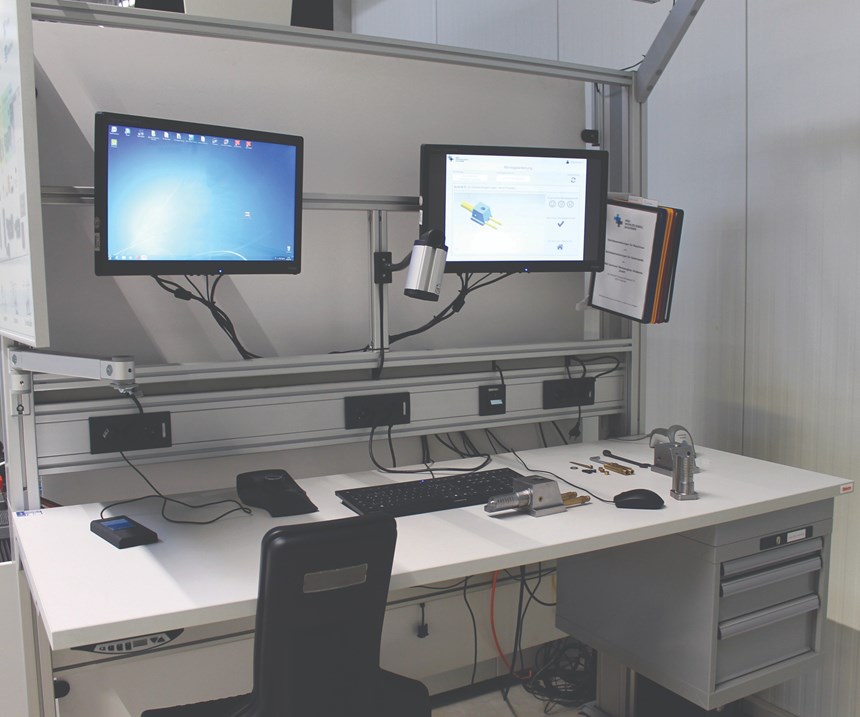
.JPG;width=860)
.JPG;width=860)


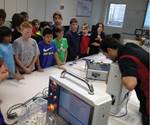















.jpg;maxWidth=300;quality=90)
.png;maxWidth=300;quality=90)

_300x250 1.png;maxWidth=300;quality=90)
